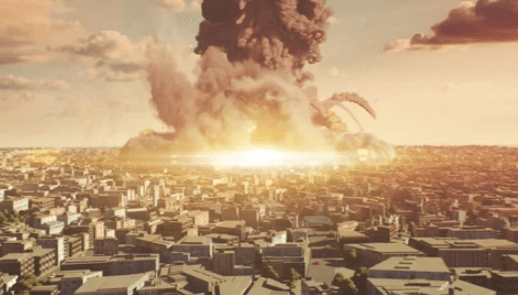Animated:3uivtw4fayw= Atomic Bomb

The exploration of the Animated:3uivtw4fayw= Atomic Bomb presents a critical examination of its historical context, scientific foundations, and moral ramifications. By tracing the journey from the inception of the Manhattan Project to the catastrophic events in Hiroshima and Nagasaki, this animation prompts a reevaluation of the ethical considerations surrounding nuclear weaponry. As we reflect on the enduring implications for global security and governance, one must consider how these historical events continue to shape contemporary international relations and the discourse on nuclear proliferation. What lessons can be gleaned from this complex legacy?
Historical Context of the Atomic Bomb
Emerging from the tumult of World War II, the development of the atomic bomb represented a pivotal moment in modern history, intertwining scientific innovation with geopolitical strategy.
The Manhattan Project catalyzed unprecedented advancements in nuclear physics, ultimately establishing a new era marked by the Cold War.
This technological leap not only reshaped military power but also introduced profound ethical considerations regarding global security and individual freedoms.
Scientific Principles Behind Nuclear Weapons
The development of the atomic bomb was underpinned by fundamental scientific principles that govern nuclear reactions.
Central to this technology is nuclear fission, where heavy atomic nuclei split, releasing immense energy.
Effective radiation shielding is critical in containing harmful emissions, ensuring safety for personnel involved in nuclear weaponry.
Understanding these principles provides insight into the complex interplay of physics and engineering essential for nuclear armament.
Read Also Wallpaper:-Xopsdedwws= Background:-Xopsdedwws= Tyreek Hill
The Hiroshima and Nagasaki Events
Historically, the atomic bomb was unleashed on the cities of Hiroshima and Nagasaki in August 1945, marking a pivotal moment in both military strategy and global politics.
Survivor testimonies reveal the profound human impact of these bombings, while cultural representations underscore their lasting significance.
Together, these narratives shape our understanding of the moral complexities surrounding nuclear warfare and its consequences for humanity.
Long-term Global Impact and Legacy
How has the advent of nuclear weaponry reshaped global politics and societal norms?
Nuclear proliferation has significantly influenced global security dynamics, fostering an environment of deterrence yet simultaneously escalating tensions.
Nations seek equilibrium through treaties and diplomacy, yet the specter of nuclear arms continues to challenge sovereignty and stability.
This duality shapes international relations, necessitating robust frameworks to address the complexities of nuclear governance.
Conclusion
The development and deployment of Animated:3uivtw4fayw= Atomic Bomb have left an indelible mark on human history, symbolizing both the pinnacle of scientific achievement and the abyss of ethical compromise. The dual-edged sword of nuclear technology continues to shape international relations and global security dynamics. As nations grapple with the specter of proliferation and the imperative of governance, the lessons of Hiroshima and Nagasaki serve as a haunting reminder of the destructive potential inherent in humanity’s quest for power.




